Adding a new puppy to your household is both a delightful and meaningful experience, overflowing with joyful play and unconditional affection. However, it’s also a period of significant responsibility, and nothing underscores this more than ensuring your fur baby’s health and wellness. The importance of regular vet check-ups for puppies cannot be overstated.
These systematic appointments are not just a formality but are essential in tracking your puppy’s growth, early detection of potential health issues, and providing timely vaccinations. As your puppy blossoms, each vet check-up is a chapter in the story of their healthy development, underscoring the importance of regular vet check-ups for puppies in nurturing a lifetime of happiness and well-being. Every playful bounce and wagging tail is anchored in sound health, a testament to the pivotal role these check-ups play.
The Early Stages of Puppyhood
In the tender early stages of puppyhood, a visit to the vet is pivotal. Puppies, much like human babies, are sensitive and require specific care to foster optimal health. The initial vet check-up plays a crucial role in establishing a health baseline, allowing for early detection and treatment of common puppyhood ailments. Vaccinations commence during this phase to protect against diseases like parvovirus, distemper, and rabies, establishing the first line of defense in a puppy’s immune system.
Nutritional needs are another focal point in these formative weeks. A vet can provide personalized dietary advice tailored to your puppy’s breed, size, and specific health needs, laying a strong foundation for physical wellbeing. The early stage check-ups also involve guidance on parasite prevention, hygiene, grooming, and the introduction of basic training to mold positive behaviors.
Monitoring growth and development milestones ensures that the puppy is on the right track. Regular vet check-ups during puppyhood not only focus on immediate health needs but also anticipate future concerns. They offer an opportunity for owners to ask questions and seek advice on their puppy’s behavior, diet, and overall wellbeing. These initial consultations are about building a relationship of care and trust between the vet, the pet, and the owner, marking the beginning of a journey toward a long, healthy, and happy life for the puppy.
What Happens During a Vet Check-Up
During a vet check-up, a thorough examination of the puppy is conducted to assess its overall health and detect any potential issues early on. The vet evaluates the puppy’s physical condition, behavior, and developmental progress. Here’s what typically happens:
Physical Examination
The vet conducts a comprehensive physical exam that includes checking the puppy’s eyes, ears, mouth, skin, coat, and skeletal structure. They listen to the heart and lungs, ensuring that all organs are functioning correctly. The vet will also palpate various areas of the body to check for abnormalities.
Weight and Growth Monitoring
The puppy’s weight is recorded to track its growth. Regular weight checks are essential to ensure the puppy is growing at a healthy rate, neither underweight nor overweight.
Vaccinations
Based on the puppy’s age, vaccinations are administered to protect against common diseases. The vet will inform the owner about the vaccination schedule and the importance of timely shots to ensure immunity development.
Parasite Control
The vet checks for signs of parasites like ticks, fleas, and worms. Recommendations or treatments for parasite control and prevention are provided to keep the puppy safe and healthy.
Nutritional Counseling
Owners receive advice on the appropriate diet for the puppy’s breed, size, and specific health needs. Proper nutrition is vital in these formative months for optimal growth and development.
Behavioral Assessment
The vet observes the puppy’s behavior to identify any early signs of behavioral issues. Advice on training and socialization is often provided to help shape a well-adjusted adult dog.
Questions and Concerns
The vet check-up is an excellent opportunity for owners to raise any concerns or questions they have about their puppy’s health, behavior, or care. The vet provides valuable insights, tips, and guidance tailored to the individual puppy.
Follow-up Schedule
Lastly, the vet will outline the schedule for subsequent check-ups, vaccinations, and preventive care measures. Regular vet visits are integral to monitoring the puppy’s development and addressing any emerging health issues promptly.
In essence, a vet check-up is a multifaceted evaluation that ensures that the puppy is on a healthy trajectory of growth and development. It underscores the importance of regular vet check-ups for puppies to foster a strong foundation for lifelong health and wellness.
The Benefits of Regular Vet Visits

Regular vet visits are not just a cornerstone for optimal puppy health, but they also lay the groundwork for the overall well-being of an adult dog. Here are the multiple benefits that come with these routine check-ups:
Early Detection of Health Issues
Vet visits allow for the early detection of potential health problems. Identifying issues at the onset often leads to more effective treatment, reducing the risk of complications and promoting a quicker recovery.
Vaccination and Prevention
Regular appointments ensure that puppies receive their vaccinations on schedule, building immunity against various diseases. Additionally, preventive measures for parasites and infections are put in place, contributing to the puppy’s robust health.
Nutritional Guidance
With each stage of puppyhood comes different nutritional needs. Vets provide personalized advice on diet, ensuring the puppy receives the right nutrients for optimal growth, development, and energy levels.
Behavioral Insights
Vets also observe behavioral patterns, offering insights and advice on managing and modifying behaviors. Early intervention can prevent the development of undesirable habits, promoting a well-behaved adult dog.
Owner Education
Each visit educates owners on the specific needs of their growing puppy. Vets offer tailored advice on care, diet, exercise, and grooming, empowering owners to provide the best possible care.
Dental Health
Regular check-ups include monitoring the puppy’s dental health, essential for preventing gum disease and other oral health issues. Early dental care fosters good oral hygiene habits.
Peace of Mind
Knowing a professional has assessed and confirmed the puppy’s good health provides peace of mind. Owners can be confident they’re taking the right steps to ensure their pet’s well-being.
Community and Support
Regular vet visits also connect puppy owners to a broader community. Vets often provide resources, workshops, and support networks, enhancing the owner’s knowledge and support system.
In conclusion, regular vet check-ups for puppies are a vital aspect of responsible pet ownership. These visits are more than just a health assessment; they’re an educational experience, a preventive measure, and a support mechanism, all rolled into one, ensuring that puppies have a healthy, happy start in life, reinforcing the importance of regular vet check-ups for puppies.
A Closer Look at Preventive Care
One of the most significant aspects of regular vet check-ups for puppies is the element of preventive care. This proactive approach is designed to ward off health issues before they arise, ensuring the puppy’s health, vitality, and quality of life. Below, we delve into the intricate layers that constitute preventive care.
Vaccinations
Preventive care starts with a thorough vaccination schedule. Immunizations are critical in protecting puppies from a range of serious diseases like parvovirus, distemper, and rabies. Each vaccine is administered according to the puppy’s age, size, and risk exposure, offering immunity at the different developmental stages.
Parasite Control
Regular vet visits also focus on controlling and preventing parasites. Puppies are examined for ticks, fleas, and worms, including heartworms. Customized preventive treatments are administered to ward off these common yet potentially dangerous parasites.
Nutritional Counseling
The importance of nutrition in a puppy’s development cannot be overstated. During vet visits, owners receive counseling on appropriate diets, feeding schedules, and portion sizes to ensure optimal growth and development. Special attention is paid to the puppy’s specific needs, considering their breed, weight, and any identified health issues.
Spaying/Neutering
This preventive measure not only controls the pet population but also reduces the risk of certain cancers and behavioral issues. Vets provide advice on the optimal time for these procedures, taking into account the puppy’s age, breed, and health.
Training and Socialization
Though not directly a medical concern, behavior and social skills are integral to a dog’s overall well-being. Vets often provide resources and recommendations on training classes and socialization opportunities to ensure puppies grow into well-adjusted, behaved adults.
Environmental Adjustments
Vets also guide pet owners on creating a safe and stimulating environment for puppies. Recommendations might include puppy-proofing homes, providing adequate exercise and mental stimulation, and addressing any specific environmental needs.
Health Screenings
Regular health screenings, including blood tests and physical exams, play a pivotal role in preventive care. These screenings can identify underlying health issues that may not yet be symptomatic, facilitating early interventions and treatments.
By incorporating these elements of preventive care, owners not only bolster the physical well-being of their puppies but also contribute to their emotional and behavioral health. Every preventive measure is a step towards a life marked by vitality, happiness, and a strong bond between the pet and its owner. The importance of regular vet check-ups for puppies thus becomes an investment in a future of wellness and companionship.
Socialization and Behavioral Assessment
The importance of regular vet check-ups for puppies transcends the physical wellness sphere, extending to behavioral health and socialization, critical components of a dog’s holistic well-being. These assessments are tailored to equip pet owners with the tools and insights necessary for nurturing well-adjusted, social, and mentally healthy dogs. Here’s a comprehensive exploration of this pivotal aspect of puppy vet check-ups.
Behavioral Screening
Each visit to the vet offers an invaluable opportunity to assess the puppy’s behavior. Veterinarians observe the pet’s temperament, reactions to new stimuli, and interactions with humans and other animals. These observations are instrumental in identifying early signs of behavioral issues, including anxiety, aggression, or phobias.
Socialization Insights
Vets play a crucial role in advising pet owners on effective socialization techniques. Puppies need exposure to a variety of environments, situations, and beings to develop adaptability and social skills. The vet provides tailored recommendations to ensure safe, positive, and diverse socialization experiences that are pivotal for the puppy’s emotional development.
Training Recommendations
Training is intertwined with behavior and socialization. During check-ups, the vet evaluates the puppy’s responsiveness to basic commands and training cues. If necessary, they might recommend professional training classes or at-home training regimes to address specific behavioral concerns and reinforce positive habits.
Emotional Health Check
Emotional wellness is an integral part of a comprehensive health outlook. Veterinarians assess signs of stress, anxiety, or depression in puppies. Recognizing and addressing these early can prevent long-term mental health issues and promote a balanced, happy life for the pet.
Owner Education
Educating pet owners is a cornerstone of these assessments. Vets impart knowledge on recognizing behavioral cues, managing undesirable behaviors, and utilizing positive reinforcement techniques. This education empowers owners to actively participate in shaping their puppies’ behavioral and social development.
Customized Behavioral Plans
Every puppy is unique, with distinct temperaments and behavioral tendencies. Vets provide customized plans that cater to individual puppies’ needs, ensuring that interventions and training are personalized and effective.
In Summary
Behavioral and social assessments during vet check-ups are not just routine processes but are foundational in fostering mentally, emotionally, and socially healthy dogs. They accentuate the multidimensional approach to canine wellness, where physical health is harmonized with behavioral and social well-being. These assessments underscore the ethos that a healthy puppy is not just free from physical ailments but is also mentally balanced and socially adept, paving the way for a lifetime of companionship marked by happiness, adaptability, and resilience.
The Path to A Healthy Dog’s Life

Embarking on the journey of puppy ownership is akin to stepping into a world teeming with joy, companionship, and the undeniable echoes of responsibility. Each wag, playful romp, and affectionate gaze underscore the symbiotic relationship between a dog and its owner. A relationship, when nurtured, blossoms into a lifetime of mutual respect, love, and unwavering loyalty. Here’s a glimpse into the pivotal steps marking the path to a healthy dog’s life.
Regular Veterinary Care
The importance of regular vet check-ups for puppies can’t be overstated. These routine visits are the frontline defense against a spectrum of health issues, offering preventive care, early detection, and treatment. Vaccinations, parasite control, and nutritional assessments are seamlessly woven into these checkups, laying a robust foundation for physical well-being.
Balanced Nutrition
A dog’s diet is instrumental in shaping its health trajectory. Quality, balanced nutrition fuels growth, energy, and overall vitality. Each meal should be a harmonious blend of proteins, vitamins, minerals, and essential nutrients, tailored to the dog’s age, breed, and health requirements.
Physical Exercise
Exercise is the lifeblood of a dog’s physical and mental wellness. Regular walks, play sessions, and physical engagement keep the dog physically fit, mentally stimulated, and emotionally satisfied. It fosters agility, reduces anxiety, and cultivates a balanced, happy temperament.
Mental Stimulation
Dogs are intelligent creatures, thriving on mental engagement. Training, puzzle toys, and interactive play sessions are pivotal in keeping the dog’s mind active, promoting cognitive development, and mitigating behavioral issues stemming from boredom or lack of stimulation.
Preventive Health Measures
Beyond the vet’s office, owners are the custodians of their dogs’ health. Administering vaccines, flea and tick preventatives, and adhering to a grooming routine are intrinsic to maintaining the dog’s health. It’s a proactive approach, where prevention supersedes cure.
Affection and Socialization
A dog’s emotional and social well-being is interlinked with its physical health. Affection, love, and positive social interactions nurture a secure, confident, and sociable dog. It’s a holistic approach where emotional wellness is viewed through the same lens as physical health.
Frequently Asked Questions
How Often Should Puppies Visit the Vet?
Puppies should have their first vet check-up at around 6–8 weeks of age, followed by monthly visits until they are about 16 weeks old to complete their initial vaccination series. After that, regular annual check-ups are recommended, though the frequency can depend on the dog’s specific health needs.
What Vaccinations Will My Puppy Need?
Puppies typically receive vaccinations for diseases like parvovirus, distemper, and canine hepatitis. Rabies vaccination is also essential. Your vet will provide a vaccination schedule based on your puppy’s age, health, and specific needs.
Should I Be Concerned About My Puppy’s Behavior During Vet Visits?
It’s normal for puppies to be nervous. Positive reinforcement and comforting your puppy can help make vet visits a more pleasant experience. Your vet can also provide tips on reducing anxiety.
What Preventive Treatments Will My Puppy Need?
Apart from vaccinations, puppies often need preventive treatments for fleas, ticks, and worms. Your vet will recommend appropriate products and dosages based on your puppy’s weight and age.
When Should I Spay/Neuter My Puppy?
The appropriate age can vary, but many puppies are spayed or neutered between 6 and 9 months old. Your vet will advise on the optimal time, considering your dog’s breed, size, and health.
Can I Ask the Vet for Diet and Nutrition Advice?
Absolutely, your vet can provide tailored recommendations on the type and amount of food suited to your puppy’s breed, age, and health status.
How Can I Prepare My Puppy for Vet Check-Ups?
Getting your puppy accustomed to being handled can help. Practice touching your puppy’s paws, ears, and mouth. Also, making the visit positive with treats and praise can be beneficial.
What If My Puppy Has Health Issues?
If health issues are detected during a check-up, the vet will advise on the necessary steps for treatment or management and may schedule follow-up visits to monitor the puppy’s condition.
Are Emergency Visits Different from Regular Check-Ups?
Yes, emergency visits address immediate and often unforeseen health issues, while regular check-ups are preventative and ensure the puppy is growing and developing healthily.
How Do Vet Check-Ups Change as My Puppy Grows?
As your dog ages, vet check-ups might include screenings for age-related conditions, dental care, and other specific tests to maintain optimal health throughout the dog’s life stages.
Conclusion
Navigating the landscape of puppy care underscores the pivotal role of routine veterinary visits. The importance of regular vet check-ups for puppies is not just about addressing immediate health concerns but is a proactive approach to holistic wellness. Each check-up is a step towards a future marked by vitality, longevity, and the quality of life every pet deserves. As pet owners, weaving this practice into the fabric of pet care ensures that our furry companions thrive, highlighting an unyielding commitment to their well-being. Each vet visit is a chapter in the comprehensive narrative of a puppy’s healthy, happy life.








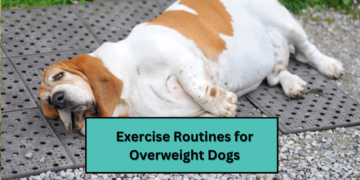

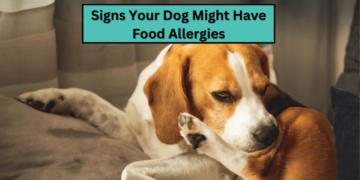

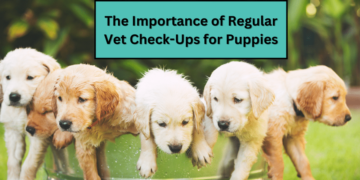






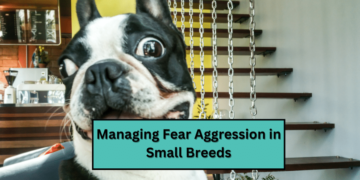






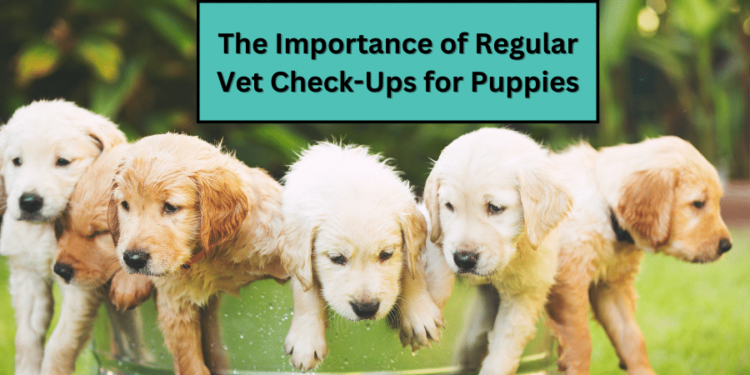

























Discussion about this post